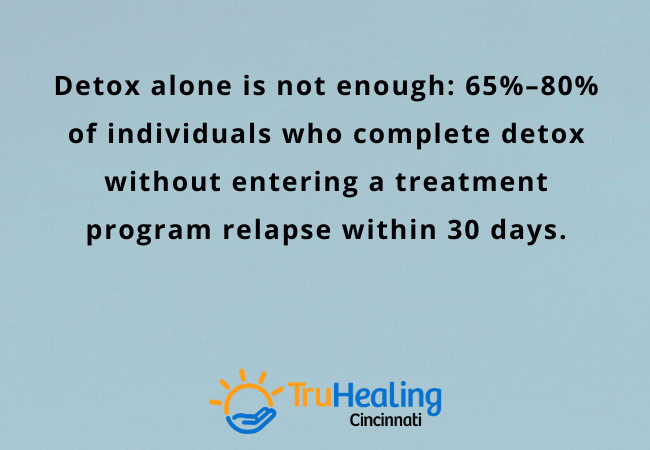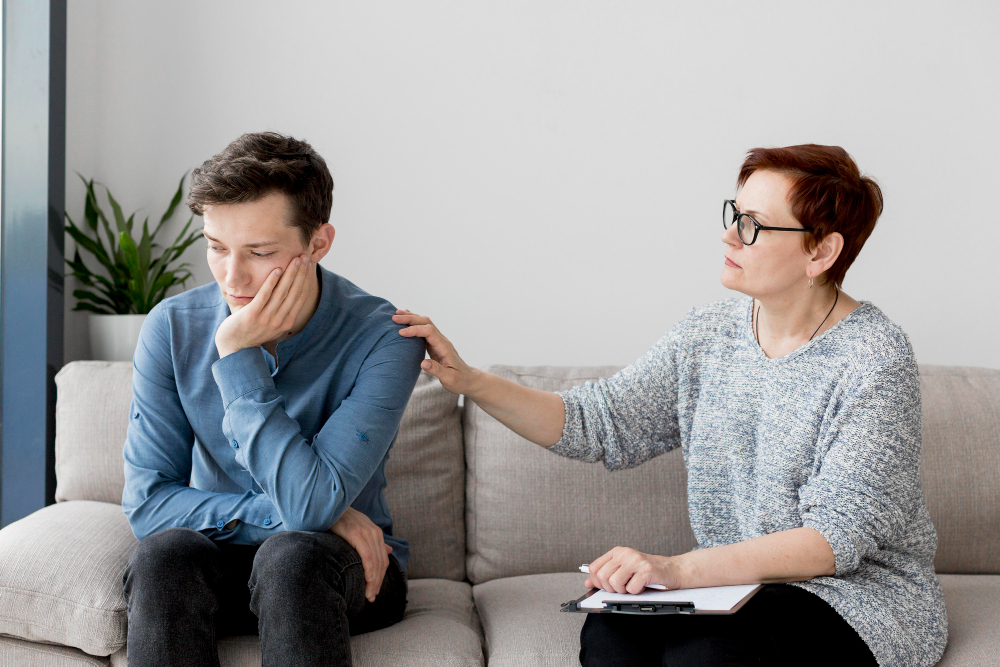Starting a Residential Treatment Program in Cincinnati, Ohio is a life-changing step. It’s the moment you decide to reclaim your future, prioritize your health, and break free from the cycle of addiction. But once you’ve made that courageous choice, the next question is: “What now?”
From what to bring to what to mentally prepare for, this guide from TruHealing Cincinnati outlines everything you need to pack, expect, and plan for before entering residential rehab. Whether you’re coming straight from a Medical Detox Program Cincinnati, Ohio, or beginning your treatment journey here, being informed will help reduce anxiety and set you up for success.
What to Pack for Residential Rehab
Each Addiction Treatment Center in Cincinnati, Ohio may have specific rules, but at TruHealing Cincinnati, we provide a recommended list that ensures safety, comfort, and focus during your stay.
Essentials to Bring:
- Valid ID and insurance card
- List of current medications (must be approved in advance)
- Comfortable, modest clothing (7–10 days’ worth; laundry provided)
- Closed-toe shoes or sneakers, plus sandals or slippers
- Toiletries (alcohol-free, non-aerosol)
- Notebook or journal
- Books or approved reading material
- Photos of loved ones for motivation
What Not to Bring:
- Drugs, alcohol, or paraphernalia
- Electronics with camera or internet access (check center policy)
- Revealing or offensive clothing
- Weapons or sharp objects
- Large sums of cash or expensive jewelry
Tip: Pack for comfort and simplicity. Residential rehab is about healing, not impressing.
What to Expect Emotionally and Mentally
Residential rehab is not just a physical reset — it’s an emotional and psychological transformation. Whether you’re receiving Opioid Addiction Treatment in Cincinnati, Ohio or care for other substances, you can expect a mix of challenges and breakthroughs.
Common Emotional Experiences:
- Anxiety or fear at intake — completely normal and short-lived
- Emotional detox — as your brain chemistry stabilizes
- Breakthroughs in therapy — often intense but healing
- Supportive bonding — with peers who understand your struggle
- Growing self-awareness — as you face root causes of addiction
You’re not expected to be perfect — just willing.
What to Expect During the First Week
The first week of treatment typically includes:
Medical and Clinical Assessments
- Mental health screening
- Substance use history evaluation
- Physical wellness checks
Orientation
- Tour of the facility
- Introduction to daily schedules and rules
- Meet your case manager and clinical team
First Steps in Therapy
- Individual counseling begins
- Group therapy introductions
- Light wellness activities (walks, meditation, etc.)
If you’re entering rehab after detox, we’ll coordinate directly with your Medical Detox Program Cincinnati, Ohio provider to ensure a seamless transition.
What Daily Life Looks Like in Residential Rehab
Structure is a cornerstone of effective Drug Addiction Treatment in Cincinnati, Ohio. Each day is thoughtfully designed to help you heal your body, mind, and spirit.
A Sample Daily Schedule:
| Time | Activity |
|---|---|
| 7:00 AM | Wake up and hygiene routine |
| 7:30 AM | Breakfast and community meeting |
| 9:00 AM | Group therapy |
| 11:00 AM | Psychoeducation or relapse prevention |
| 12:30 PM | Lunch |
| 2:00 PM | Individual counseling or life skills |
| 4:00 PM | Holistic therapy (yoga/art/mindfulness) |
| 5:30 PM | Dinner |
| 7:00 PM | Evening group or recovery meeting |
| 9:00 PM | Journaling and wind-down |
| 10:00 PM | Lights out |
Planning for Life During and After Rehab
Your time in residential treatment will be focused on healing — but preparation for what comes next is also key.
Things to Plan Before Entering:
- Arrange childcare, work leave, or school accommodations
- Set up automatic bill payments or trusted financial help
- Coordinate with your family or support system for check-ins
- Let go of social media or outside distractions temporarily
What to Plan for After Rehab:
- Step-down into Partial Hospitalization Treatment in Cincinnati, Ohio or Intensive Outpatient Treatment in Cincinnati, Ohio
- Sober living or supportive housing options
- Outpatient counseling and peer support groups
- A healthy lifestyle routine (sleep, exercise, nutrition)
Your case manager at TruHealing Cincinnati will help you build a personalized aftercare plan to reduce relapse risk and support long-term recovery.

Preparing Your Mindset — Recovery Starts Before You Arrive
Packing a bag is one thing. Preparing your mind is another. The emotional and mental shift required to enter a Residential Treatment Program in Cincinnati, Ohio is just as important as the clothes or toiletries you bring.
Tips to prepare your mindset:
-
Let go of perfection: You don’t need to have it all figured out to begin.
-
Embrace vulnerability: Healing requires honesty — with yourself and others.
-
Set your intention: What are you hoping to reclaim, repair, or rediscover?
-
Accept discomfort: Growth often begins where comfort ends — be willing to lean in.
You don’t need to feel “ready” to begin treatment. You only need to be willing.
Coping with Pre-Treatment Anxiety
Feeling nervous before entering rehab is completely normal. Whether you’re worried about withdrawal symptoms, group therapy, or simply leaving home, know this: you’re not alone, and the fear will pass.
Strategies to reduce pre-treatment anxiety:
-
Talk to someone who’s been through it
-
Read stories of recovery (TruHealing can provide success testimonials)
-
Write a goodbye letter to your addiction — it can be cathartic
-
Limit time on social media or forums that may increase fear or doubt
-
Speak to an admissions coordinator to clarify any concerns
Our team at TruHealing Cincinnati, one of the leading Addiction Treatment Centers in Cincinnati, Ohio, is trained to make your arrival comfortable and compassionate.
Communicating with Loved Ones Before You Leave
Your time in residential treatment may limit outside contact early on. That’s why it’s helpful to communicate with friends, family, and coworkers before you arrive.
What to consider sharing:
-
That you’re entering treatment and why
-
How long you may be away (typically 30+ days)
-
What kind of contact they can expect (phone, letters, family therapy)
-
Who they can contact if needed (designated family liaison)
You don’t need to share everything with everyone — but opening up to trusted loved ones can help strengthen your support system during and after rehab.
Setting Personal Goals Before Admission
Rehab isn’t just about quitting substances. It’s about rebuilding your life. Setting small, meaningful goals before admission gives your treatment journey purpose.
Examples of pre-admission goals:
-
“I want to stop lying to my family.”
-
“I want to wake up without needing pills or alcohol.”
-
“I want to learn how to manage my anxiety without drugs.”
-
“I want to be someone my kids can rely on.”
Share your goals with your therapist once you begin treatment — they can help you build a recovery plan around what truly matters to you.
Conclusion
Entering a Residential Treatment Program in Cincinnati, Ohio is one of the most important — and empowering — decisions you can make. It’s more than just packing a bag or stepping into a facility. It’s the moment you choose healing over hiding, action over avoidance, and recovery over relapse.
At TruHealing Cincinnati, we’re here to make that transition as smooth, supportive, and meaningful as possible. Whether you’re coming directly from a Medical Detox Program Cincinnati, Ohio or starting your journey with us, our team will walk alongside you every step of the way. Prepare with purpose. Arrive with courage. And know that the life you want is waiting — and it starts here. Ready to begin? Call us today at 513.643.9118 to take the next step toward lasting recovery.
FAQs on Preparing for Residential Treatment
Can I bring my cell phone?
Phones are typically restricted during early treatment but may be allowed later under supervision. Ask your admissions team for current policies.
How long will I stay in residential rehab?
Most stays last 30–45 days, but we tailor the length to your needs and progress.
Can my family visit or participate in my recovery?
Yes. We encourage family therapy and offer education for loved ones.
What happens if I relapse after leaving?
You’re not alone. We help you re-engage with care immediately through our continuum of services.

